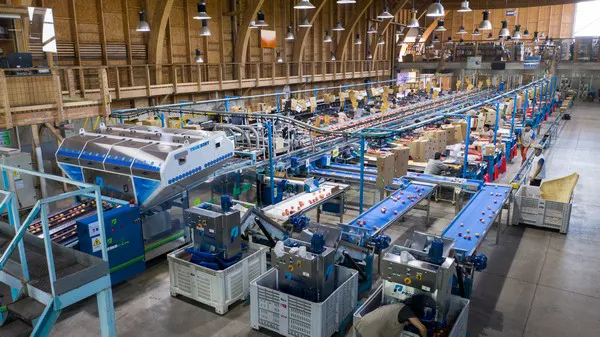The main players in the export and import sectors are working to identify solutions to the logistic issues that have driven up food prices worldwide and severely impacted Chile and its global trade partners. Important progress has already been made as meetings have been held with the Ministries of Transportation and Economy. This type of coordination between the public and private sectors is unprecedented in Chile.
Key players, including the National Chamber of Commerce (CNC), the National Corporation of Consumers and Users (Conadecus), the Food Export Council, the Fruit Exporters Association of Chile (ASOEX), the Federation of Fruit Producers of Chile (Fedefruta) and port logistics operators, are working with carriers, drivers and workers from the ports of Valparaíso and San Antonio. They have expressed their intention to help evaluate and define the measures that must be implemented to untangle the logistics issues facing Chile.
It has been acknowledged that, while logistical issues further escalated due to the pandemic and the war between Russia and Ukraine, the national solution to the problem involves taking short and medium-term measures to improve the efficiency of Chilean ports, solving the shortage of workers throughout the logistics chain and finding a way to mitigate the rise in shipping rates, among other issues.
One measure being considered is the authorization of the Port of Ventanas to receive cargo ships. Other measures include giving priority to food and strategic supplies in port operations, making chamber ships available in the Valparaíso and Coquimbo terminals and the ports of the Eighth Region, and modifying the wave height restrictions in the port of San Antonio, which would facilitate the arrival and departure of more ships.

The president of Conadecus, Hernán Calderón, estimated that "the serious logistics crisis, which affects the entire country, puts the prices of food and essential goods at risk, affecting the entire population in an inflationary context that is alarming and where urgent solutions are needed to protect those in greatest need.”
The president of ASOEX, Ronald Bown, stated that "the loss of fruit and the uncertainty generated by the inability to have fruit arrive on time to international clients is generating a crisis that affects the image of Chile as a premier global supplier.”
Claudio Cilveti, president of the Food Export Council, highlighted the need to strengthen the logistics chain for the recovery of the export sector. “A robust management model must be put in place to meet commitments with destination countries, stimulate foreign trade, promote production and increase the supply of products, thus promoting the growth of the country's employment and economy at a time when it is most needed,” he said.
Finally, Ricardo Mewes, president of the CNC, stressed that "the increase in fuel costs, along with alterations in routes and shipping capacity, puts greater pressure on freight rates, which has impacted the cost of imports.”
 For more information:
For more information:
Karen Brux
Chilean Fresh Fruit Association
Tel: (650) 218-5061
kbrux@fruitsfromchile.com
www.fruitsfromchile.com
